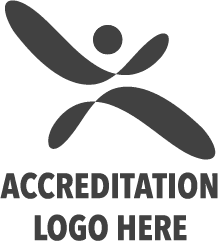The COVID-19 pandemic made remote working a necessity, and it’s clear that this shift is here to stay. Many professionals have welcomed the change, enjoying benefits like increased productivity, better work-life balance, and the elimination of long commutes. The engineering sector is no exception, having to adapt quickly to predominantly hybrid work models.
In this blog post, we will explore how remote work is reshaping the engineering industry. We’ll dive into the benefits that remote working brings to engineers, such as enhanced productivity and broader talent pools, while also addressing the challenges, including communication barriers and technical difficulties. We’ll also look at the engineering roles that thrive in a remote environment and how companies can support their remote engineering teams effectively.
How Remote Work is Shaping the Engineering Employment Landscape
Remote working has significantly impacted the engineering employment landscape. According to a report by The Engineer, the shift towards remote roles has transformed how the sector operates, bringing both opportunities and challenges.
Impact of Remote Work on Employee Turnover
Companies offering fewer remote working opportunities are seeing higher employee turnover rates. Engineers are actively seeking roles that allow for remote work, and many are even willing to switch industries to find such opportunities. In contrast, businesses that provide more remote positions can access a larger, more diverse talent pool, retaining their workforce more effectively.
Preferences for Flexible Employment Terms
Since the rise of remote and hybrid working, employees have shown a strong preference for the flexibility these roles offer. This trend is especially pronounced among Gen Z engineers, who now form a significant portion of the workforce. Flexible work arrangements have become a key factor in their employment decisions. However, many employers still struggle to meet this demand, leading to dissatisfaction among their teams.
Positive Impacts of Remote Work on Engineering
Flexible Work Arrangements: The adoption of remote-friendly technologies has enabled engineers to work from virtually anywhere. This flexibility allows engineers to create an optimal work environment, boosting productivity, job satisfaction, and reducing burnout.
Expanded Talent Pool: Remote working benefits both employees and employers by expanding the search for talent globally. Companies can now collaborate with individuals with specialised skills without being limited by geographical barriers. This diversity fosters innovation and enhances competitiveness.
Infrastructure Changes: The shift to remote work has prompted many companies to re-evaluate their infrastructure. Virtual collaboration platforms, cloud-based storage systems, and robust cybersecurity measures have replaced traditional office setups, streamlining operations and ensuring smooth communication and data management.
Challenges of Remote Engineering
Time Zone Differences: While remote work enables global collaboration, managing teams across different time zones can be challenging. Scheduling meetings and coordinating project timelines become complex when team members are spread worldwide.
Technical and Communication Issues: Remote engineering relies heavily on digital infrastructure, making it susceptible to technical glitches and communication barriers. Unreliable technology, poor internet connections, and troubleshooting difficulties can impact efficiency and hinder project progression. Clear communication lines and reliable technology are crucial to overcoming these challenges.
Find Your Future Engineering Role with Marshall Harmony
At Marshall Harmony, we specialise in engineering recruitment, committed to helping you find the perfect role that matches your skills, career aspirations, and expertise. Whether you’re an engineer looking for your next opportunity (remote or in-person) or a company seeking to hire, we are here to assist.
For information about live engineering vacancies or to learn more about our services, don’t hesitate to contact our team today.
I’m Laura and I’m the Managing Director of Marshall Harmony. I head up the Executive search and selection side of our business Marshall Harmony Executive. I’m a mum of 2 and Marshall & Harmony are actually my children’s middle names making them the true inspiration and “why” for my business.












